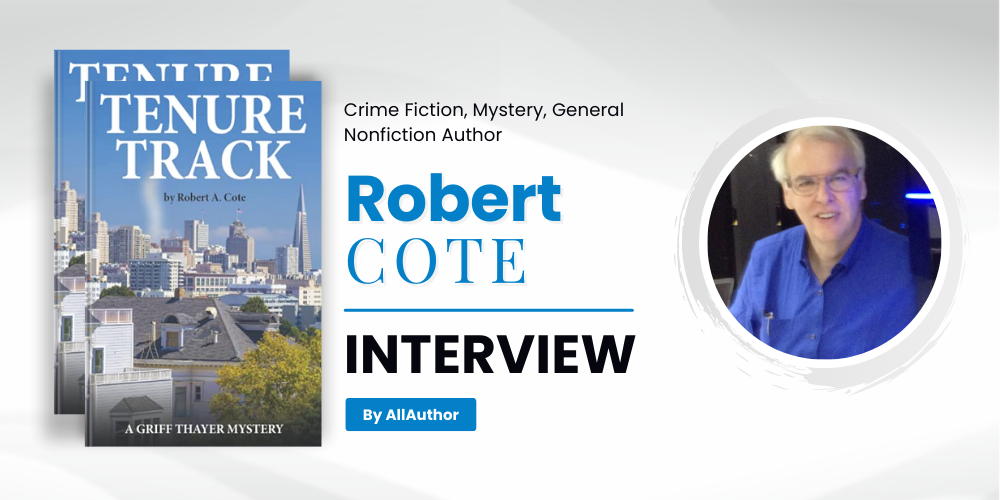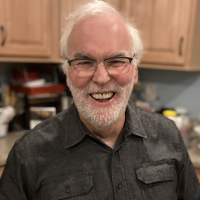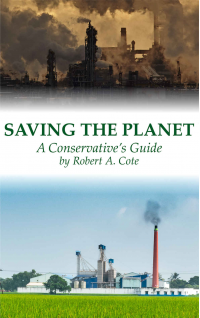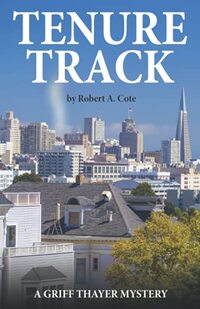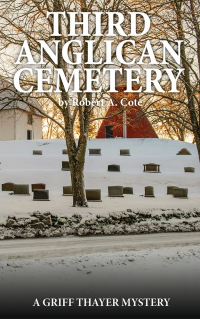What is the name of your hometown and where you grew up?
I grew up in a small city in Southeastern Massachusetts.
Who all are a part of your family? How critical are they of your writing?
I have a very large family and we try to stay in touch. In addition to my brothers and sisters I have dozens of nieces and nephews and grandnieces and grandnephews. Several of them have read my books and are quite supportive. For my non-fiction work of "Saving the Planet A Conservatives Guide" some were critical of the stand I took, which is contrary to many others of my political bent.
My wife is my biggest supporter and also my sounding board for plot ideas, dialogues, and other aspects of a book.
When were you first drawn to writing?
I have always been drawn to writing and creativity. If you could have asked my parents, some of my excuses for missing curfew were very creative.
Do you remember the first book you ever read? What was it about?
I don't remember the first book, it may have been a Golden Book, or other book like that. I learned to read from my older brothers who were in school years before me.
How much research did you do before writing your suspense novel, Tenure Track?
I didn't do too much research for Tenure Track or its follow up Third Anglican Cemetery that just came out. As I said in the intro, I played fast and loose with the geography of San Francisco and western Massachusetts. I did look into some details, such as SFPD organization and tactics at the time.
What is your writing process like, and how do you typically approach starting a new project?
Since inspiration can come at any time, I try to keep notes when I have an idea for a plot, a book, or an essay. When I am ready to start a work of fiction, I outline the basic premise, story, characters, and conclusion. I fill in the blanks from there. Character development is fun. For even my minor characters, I like to have a backstory to explain their motivation and how they got where they are. In the Griff Thayer series, Amanda is obviously based on my creative and patient wife of many years. Griff's niece is a composite of several of my real-life smart and headstrong nieces. Even the college professor is based on a friend who has a keen interest in many subjects and has an interesting background.
My approach to non-fiction is much more business-like. I outline what I am trying to accomplish, write out the topics and then research the issues further. I then try to draw a conclusion from my research and not personal beliefs. It's still fun, just a bit more serious.
What advice do you have for aspiring writers, and how can they best develop their craft and find their own unique voice?
I'm not really qualified to give advice. I've only been a professional writer for a few years and I'm still finding my way. The only thing I can say is; Have fun immersing yourself in the world you're creating.
If you aren't sure you can write a book and want to challenge yourself, try participating in the National Novel Writing Month event. The deadline and encouragement can help you pace yourself and get that first draft out there. Welcome | NaNoWriMo
What is your most unforgettable moment with a fellow traveler in a flight?
I used to travel a lot for business and have a lot of stories. One of the more amusing episodes occurred on a December flight from New York City to Boston; If you could call it a flight, we were on hold for more than 90 minutes. I was sitting near the window and was joined by a woman who was wearing no visible make-up, a sweatshirt, jeans, and hiking shoes. The longer the plane sat, the more agitated she became, checking her watch about every thirty seconds. Finally we were airborne. She grabbed her carry-on and left her seat almost the second the seatbelt light was turned off. About 40 minutes later, the flight attendant asked us to return to our seats and prepare for landing. A couple of minutes later I was joined by a woman wearing an obviously expensive evening gown, elaborate makeup, and her hair worn up. It took about a minute before I realized it was the same woman. She was still wearing the hiking shoes. She smiled at me and said she was due at an engagement party, her own, about 30 minutes after we landed. How she managed to change in the airplane restroom, do her make-up, style her hair was beyond me.
Upon landing we both took the water taxi downtown where she was going to an elegant hotel and I went to the train station for the trip home.
What challenges did you face while writing your book, Saving The Planet A Conservative's Guide?
The biggest challenge was trying to convince the reader that environmental issues are not, or should not be, political. No matter where we are on the political spectrum, we all have to live on this planet. I invited a friend who is my political polar opposite to write the foreword. As my friend points out - we agree on the ends, it's the means we fight over. The book was not as popular as I had hoped. It was written with the thought that the environment would be the big issue of the 2020 election. Turns out I was wrong. But I am still proud of the work.
What are some mystery novels one should read before writing one?
I would recommend anything by Raymond Chandler and his contemporaries, the writers who defined the genre. More modern authors would be Tony Hillerman, whose books show us the importance of respecting the culture of your subject. If you're looking for a more cerebral PI then Robert Parker should be your choice. These authors show the value of characters with their own flaws and quirks.
What is one piece of advice that you've read in a book that has stuck with you for life?
That's a tough question and one I'm not sure I can answer, although the answer will probably come to me in the middle of the night.
What is your favorite book or piece of writing, and how has it influenced you or your work?
One of my favorite books is by a local author, Herman Melville's Moby Dick. I have read it a number of times and found something new each time. It is a great lesson in human nature and how the lives and actions of others can become intertwined to either a happy or tragic ending. It is a good historical work describing the work of people who provided something necessary to the economy of the United States at that time; whale oil.
How do you stay motivated and overcome writer's block or other creative obstacles?
I usually stay motivated because I feel really invested in my projects. There are times I get stuck, have written myself into a corner, or just am not sure of the next steps. At that point I put the project away and do something else. Almost always, the answer comes to me when I least expect it and in a matter of a day or even hours, I'm back at it.
How many plot ideas are just waiting to be written? Can you tell us about one?
I have four more Griff Thayer novels drafted and outlines for three more. I am currently rewriting the next Griff Thayer mystery. It will involve trying to determine a beloved and recently deceased WWII veteran and his involvement in certain actions during the war. He is trying to determine if this man stole valuables during the war and, if so, what became of them. Griff will interact with a foreign diplomat, her staff, and a local Green Beret home on leave. Of course the local characters are there for support as well. I hope to have it ready for print by this fall.
I also am working on a non-fiction book about how AI will change our work lives. This one is a challenge because the capabilities of AI are currently being both hyped and understated. A real moving target if there ever was one.
How were you first introduced to AllAuthor? Do you have any feedback?
I was introduced to AllAuthor by a colleague who also recently published her first book. I have found it to be a valuable resource for new writers.
